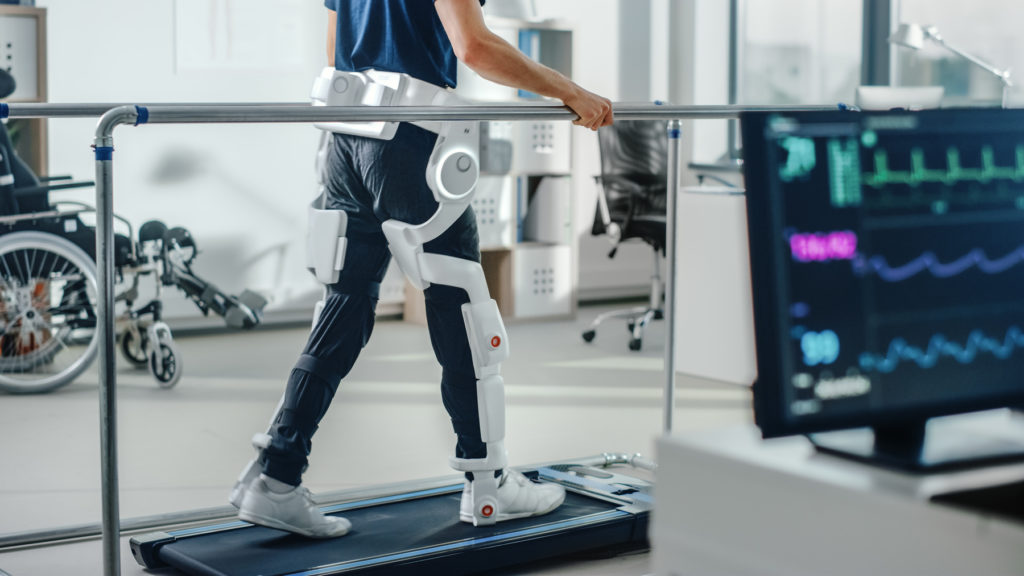Closed Loop AI Systems pave the way for personalised medicine
Amidst the rapid advancements in healthcare technology, Closed Loop AI Systems emerge as powerful tools that can change the way we approach patient care and clinical decision-making. Combining the power of artificial intelligence with the precision of Closed Loop methodologies, these systems hold the key to unlocking personalised medicine and optimising treatment outcomes.
In this article, we’re exploring the capabilities of Closed Loop AI Systems and their role in paving the way for a future where healthcare is smarter and better tailored to the needs of patients.
What are Closed Loop AI Systems?
Traditional Closed Loop Systems in healthcare represent a comprehensive approach to patient care, integrating various components to optimise treatment delivery and improve patient outcomes. These systems operate on the principle of continuous feedback and adjustment, ensuring that interventions are tailored to individual patient needs and closely monitored for effectiveness. One example of a Closed Loop System in healthcare is Closed Loop Anaesthesia Delivery System, which automates the administration of anaesthesia, ensuring precise dosing and personalised care. It operates on a continuous feedback mechanism that monitors a patient’s vital signs and adjusts the anaesthetic dosage accordingly.
The operation of the Closed Loop Systems can be outlined in three primary phases:
- Data Acquisition: Sophisticated sensors continuously gather real-time physiological data from the patient, for example heart rate, blood pressure, or oxygen saturation levels. This data stream is continuously channelled into the Closed Loop System for analysis.
- Data Processing: Within the Closed Loop System, advanced algorithms analyse and interpret the collected data. These algorithms assess the patient’s physiological response to a certain medication or treatment, determining the necessary dosage to get optimal patient outcomes.
- Dose Adjustment: In response to the analysis, the closed-loop system autonomously adjusts the parameters of medication dosage. This dynamic adjustment aims to sustain the desired effect while closely monitoring the patient’s condition in real time. Through continual reassessment, the system makes instant modifications to maintain the targeted outcomes, thereby mitigating the risk of over or under-medication.
Closed Loop AI Systems take the concept of Closed Loop Systems to the next level by integrating artificial intelligence (AI) algorithms into the feedback loop.AI algorithms analyse vast amounts of patient data, including medical history, diagnostic imaging, and real-time physiological parameters, to provide insights and recommendations for clinical decision-making. For example, in oncology, Closed Loop AI Systems can analyse tumour imaging data alongside treatment responses to optimise chemotherapy regimens, minimizing toxicity and maximising efficacy.
Transform your healthcare solutions with our help
Learn moreBenefits of Closed Loop AI Systems for healthcare professionals, patients, and the healthcare industry
The integration of AI into Closed Loop systems offers numerous benefits across the healthcare ecosystem:
Enhanced clinical decision-making
AI algorithms augment healthcare professionals’ decision-making capabilities by providing real-time insights and recommendations based on comprehensive data analysis.
Improved patient outcomes
By optimising treatment regimens and facilitating early intervention, Closed Loop AI Systems contribute to improved patient outcomes, including reduced mortality rates, shorter hospital stays, and enhanced quality of life.
Efficiency and cost savings
Closed Loop AI Systems streamline clinical workflows, reduce medication errors, and optimise resource utilisation, leading to cost savings for healthcare providers and payers.
Personalised medicine
AI-driven insights enable personalised treatment approaches tailored to individual patient characteristics, preferences, and response patterns, paving the way for personalised medicine.
Data-driven research and innovation
The wealth of data generated by Closed Loop AI Systems fuels research and innovation in healthcare, driving advancements in disease understanding, treatment modalities, and therapeutic outcomes.

The future of Closed Loop AI Systems
The future of Closed Loop AI Systems in healthcare brims with possibilities for further evolution and innovation. With the continuous advancement of AI technologies, several key developments are anticipated, including greater integration and interoperability, the need to build systems that support scalable and maintainable AI workflows, enhanced AI capabilities, and expansion into new domains.
Closed Loop AI Systems are poised to seamlessly integrate into existing clinical workflows and healthcare IT infrastructure, facilitating smooth interoperability and data exchange across diverse systems and settings. It holds the promise of streamlining communication and collaboration among healthcare professionals, improving care coordination, and ultimately enhancing patient outcomes.
Also, AI algorithms are set to become more intricate, harnessing techniques like machine learning, natural language processing, predictive analytics, and reinforcement learning. This enhanced capability empowers clinicians with deeper insights and actionable intelligence, enabling more informed decision-making and personalised patient care. Intelligent systems that leverage reinforcement learning can adapt and improve over time, learning from historical data and dynamically responding to changing conditions. Moreover, there’s the possibility that AI could replace the conventional controller block entirely. Instead of relying on traditional methods, AI would directly interpret sensor readings as feedback for the process. This shift in approach could lead to more efficient and adaptive Closed Loop control systems, where AI dynamically adjusts parameters based on real-time data, optimising performance and enhancing outcomes.
Furthermore, the reach of Closed Loop AI Systems will extend beyond conventional clinical applications, embracing new realms such as population health management, remote patient monitoring, and personalised wellness interventions. Healthcare’s data science platform will be a key enabler for these future solutions, supporting personalised health and wellness through conversational AI and providing innovative tools for logging, tracking, and learning about health in an accessible and user-friendly manner. By leveraging AI-driven insights and predictive analytics, healthcare organisations can proactively identify health trends, anticipate patient needs, and tailor interventions to individual preferences and circumstances, ushering in a new era of preventive and personalised healthcare.
Ethical and regulatory considerations regarding Closed Loop AI Systems
As the Closed Loop AI Systems become increasingly integrated into clinical practice, given their potential impact on patient care, privacy, and safety, it’s crucial to address ethical concerns and establish clear regulatory frameworks to ensure responsible and equitable use.
One of the primary ethical considerations revolves around patient autonomy and informed consent. Closed Loop AI Systems may collect and analyse vast amounts of patient data, including sensitive health information. It’s imperative to obtain informed consent from patients regarding the use of their data for AI-driven decision-making and treatment recommendations. Additionally, patients should have the right to understand how their data is being used, who has access to it, and how it is protected to uphold their privacy rights.
Furthermore, ensuring fairness and mitigating algorithmic bias is a significant ethical challenge in AI-driven healthcare. AI algorithms may inadvertently perpetuate or exacerbate existing biases present in healthcare data, leading to disparities in diagnosis, treatment, and access to care. It’s essential to implement measures to detect and address bias in AI algorithms, such as diverse training data sets, algorithmic audits, and ongoing monitoring for disparities in outcomes.
From a regulatory perspective, Closed Loop AI Systems must adhere to established standards and guidelines to ensure patient safety and quality of care. FDA regulations in the United States or the MDR in Europe, are the main sources for evaluating and approving AI-driven medical systems. These agencies assess the safety, effectiveness, and reliability of AI algorithms used in healthcare and may require rigorous testing and validation before deployment.
Data privacy and security regulations, such as the Health Insurance Portability and Accountability Act (HIPAA) in the United States or the General Data Protection Regulation (GDPR) in Europe, also apply to Closed Loop AI Systems. Healthcare organisations and AI developers must comply with these regulations to safeguard patient data against unauthorised access, breaches, and misuse.
Leverage the power of Closed Loop AI Systems in healthcare
Our experts will advise you on how to incorporate AI into a Closed Loop system to unlock new possibilities for more precise medical insights, personalised care, and improved efficiency. Learn more about our healthcare and life sciences services or contact us via the form below.
Closed Loop AI Systems refer to artificial intelligence models that operate in a continuous feedback cycle. These systems analyse data, provide recommendations, and also learn from the outcomes of their actions, adapting and refining their behavior over time. In healthcare, this allows for real-time, personalised adjustments to treatment plans based on patient responses.
These systems facilitate dynamic, patient-specific treatment by continuously collecting and analysing health data. This enables healthcare providers to tailor their interventions based on real-time feedback, resulting in care that is more precise and effective and evolves alongside the patient’s condition.
Real-time data is essential for the operation of Closed Loop Systems. It provides the continuous input required for AI models to assess the current status of patients, detect anomalies and adjust therapeutic strategies promptly, thereby enhancing the safety and efficacy of medical interventions.
Key technologies include wearable sensors, remote monitoring tools, machine learning algorithms, electronic health records (EHRs) and cloud computing platforms. Together, these components ensure seamless data collection, processing and feedback delivery within the AI Loop.
Benefits include improved treatment precision, early detection of complications, reduced clinician workload, and enhanced patient outcomes. By automating aspects of monitoring and decision-making, these systems support more proactive and efficient healthcare delivery.
About the author




